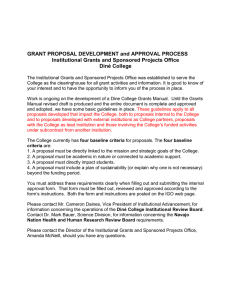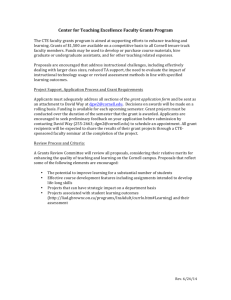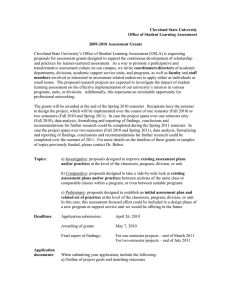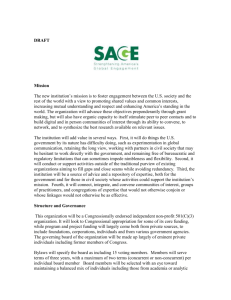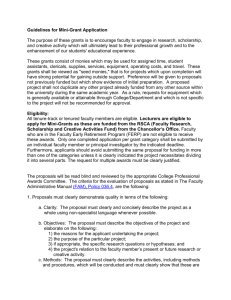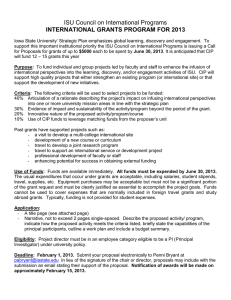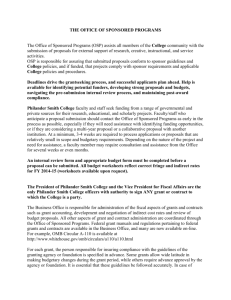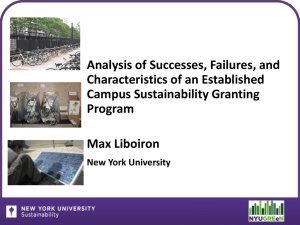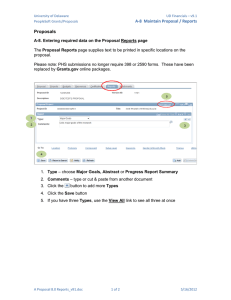Research Proposals and Problem Grants
advertisement
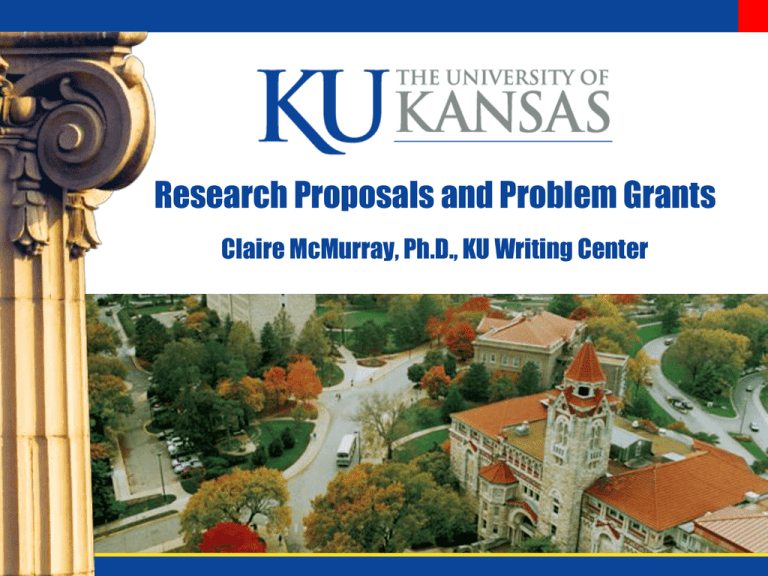
Research Proposals and Problem Grants Claire McMurray, Ph.D., KU Writing Center The Vocabulary of “Grant” “Writing” What do we mean by “grants”? Why is it more than just “writing”? Vocabulary can differ from grant to grant It is a learnable skill so train and practice! Different Types of Grantors Government • Local • State • Federal Foundations • Community • Corporate • Donor advised funds Corporations • Sponsorships Different Types of Funding • • • • • • • • • • • • • Research proposal Capital project Capacity building General operating Specific Project Arts & culture grant Continuing support Curriculum development Emergency funds Facilities/equipment Employee matching gifts Endowment funds Management/technical assistance • • • • • • • • In-kind gifts Matching/challenge support Seed money Program related investments (loan) Social entrepreneurship (making $ with your mission) Postdoc Fellowship And more! Limitations of Grants www.grantelligence.com Steps in the Grant Writing Process Researching Planning Writing Editing Submitting Revising Resubmitting Where does academia fit in the funding world? In addition to more “typical” grants: Research proposals Fellowships Postdoc applications Research Proposals vs Problem Grants Research Proposals • Academia • Main goal: knowledge • Hypothesis/research question • Unknown outcome • Thorough literature review • Investigator credibility • Concludes with dissemination of knowledge • • • • • • Problem Grants Non-profits Main goal: improvement for a specific group Problem statement Anticipates problems, shows immediate results Explains organization’s background, history, mission Concludes with grant sustainability How are they similar? Both types must: Include a summary/abstract Explain the project’s methodology Show the question’s/problem’s significance Demonstrate the project’s contribution Include a budget Contain good writing (clear, concise, no jargon, etc.) Provide good organization (logical flow, helpful subheadings, etc.) Strive to follow the grantor’s instructions completely Demonstrate a good “fit” Weave all sections of the grant together (show how everything builds from the core: the question/gap/problem) Include a plan for evaluating the project’s success/outcomes Research Proposals: A Template Transmittal letter Title page Abstract Table of contents Topic of wide interest Brief reference to literature Gap in knowledge Research question Specifics of project Literature review Methodology Timeline Budget Strong conclusion theprofessorisin.com Problem Grants: A Template Abstract/summary/executive summary Introduction/credibility/organizational history Problem statement/statement of need Methods/procedures Program objectives and outcomes Evaluation Future funding/program sustainability Budget Supporting documents Rules for Good Grant Writing High impact information first Bolding/bullets/subheadings are your friends Follow instructions! Have others edit your work Tables and graphs save space and break up text Action verbs and active voice jazz it up Use short, concise sentences and short paragraphs No jargon No cramming on the page Be specific as much as possible Support statements with facts, evidence, etc. “Man, they weren’t very encouraging.” www.grantelligence.com Need some encouragement? Come visit the Writing Center for more help! Grant Resources on Campus Grant writing books in the library and Writing Center Hall Center for Humanities Graduate Writing Program Grants/Scholarships Subject Librarian KU Office of Research Check your handout for more helpful links and resources! Questions? And now for a hands-on activity…

